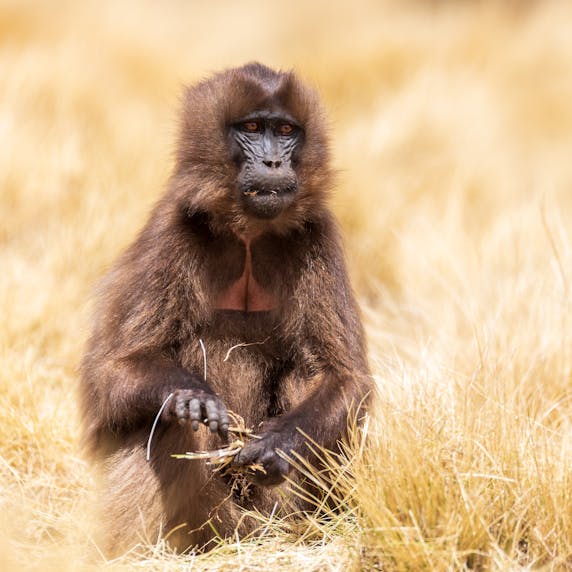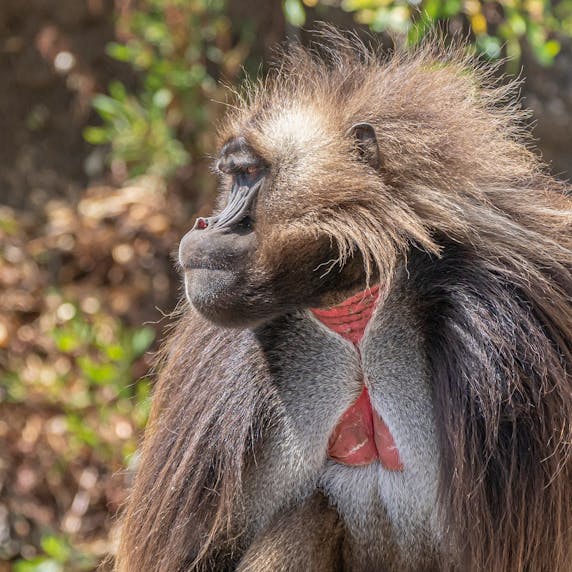
In the high mountains of Ethiopia, large groups of geladas roam the alpine plains. These monkeys search for special food: grass, something no other monkeys eat. But because of the increasing numbers of cattle in the mountains, the geladas have to share their grass and their habitat is shrinking. How dangerous this is for the geladas is still unknown. This is why Rotterdam Zoo is helping to keep up with the geladas so that we can better protect them.
Theropithecus gelada

Up to 20 years
Up to 50 centimeters
50-70 centimeters
♀ ± 11 kilograms
♂ ± 18.5 kilograms
Geladas are large monkeys with yellow-brown fur. They are closely related to baboons, but they have a rounder snout and no bright red buttocks. The difference between males and females is evident in the male's large mane. But perhaps their most striking feature is the red spot on the chest, which swells when females are ready to mate. Because of this, the gelada is also known as the ‘bleeding-heart monkey’.
...You hear a group of geladas from far away? The group talks to each other all day long.
...The gelada is the only primate that can make the same rapid lip movements and accompanying sounds as humans?
Geladas are found in the Ethiopian highlands, between 1400 and 4400 metres above sea level. They roost near steep cliffs, where they are safe from most predators. Geladas are not really built to climb trees and therefore spend most of their time on the ground.

Geladas are highly social monkeys, eating together, sleeping together and grooming each other to strengthen the bonds between them. They communicate with an elaborate set of gestures, facial expressions and sounds. For example, a gelada can threaten by raising its eyebrows. If that is not enough, they thereby raise their flexible upper lip, revealing their giant canines. Geladas also use special sounds just for their group mates: a kind of names! These sounds, formed with rapid lip movements, are also known as ‘wobbling’.

Geladas live in family groups with usually one dominant male, several females and their offspring. When the young males mature, they split off from the family group and join a bachelor group. Sometimes, a male from a bachelor group drives out the male of a family group. When the females prefer him to the old male, he will kill his predecessor's young so that the females quickly become fertile again. This way, he can produce his own offspring. Pregnant females even stop developing their foetuses when this happens!

Gelada habitat is under increasing pressure from the growing population in Ethiopia, which is also increasing agriculture. To know how much effect this is having on gelada numbers in the wild, Rotterdam Zoo is supporting a long-term research project. This looks at gelada behaviour and how the quality of their habitat changes over the years. By involving local communities in this project, the researchers are creating more support for protecting these marvellous monkeys.
Rotterdam Zoo has two separate groups of geladas: a bachelor group and a family group. To prevent only one male having offspring, the males are allowed to take turns with the family group. After a while, when several young are born, the father goes back to the bachelor group to make room for a new male in the family group.

